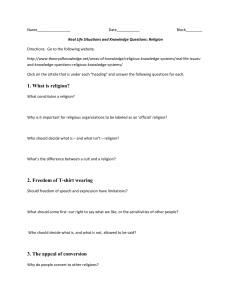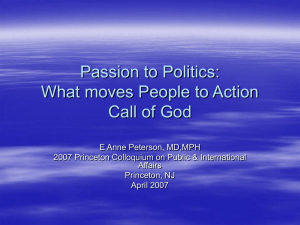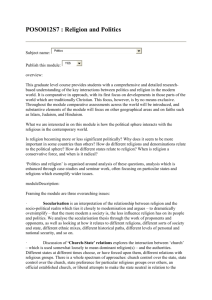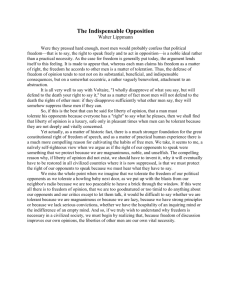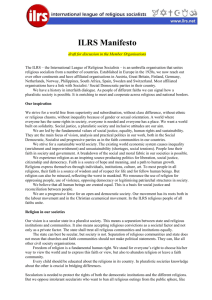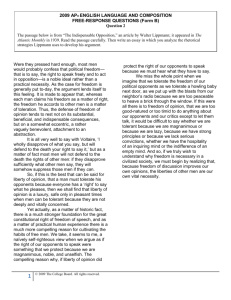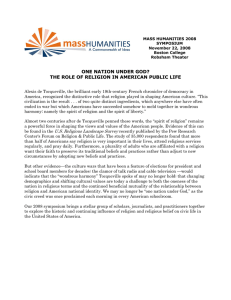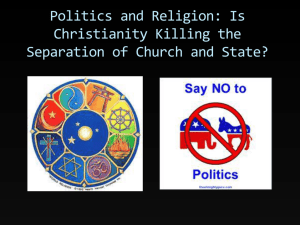Faith based groups or institutions involvement in politics
advertisement
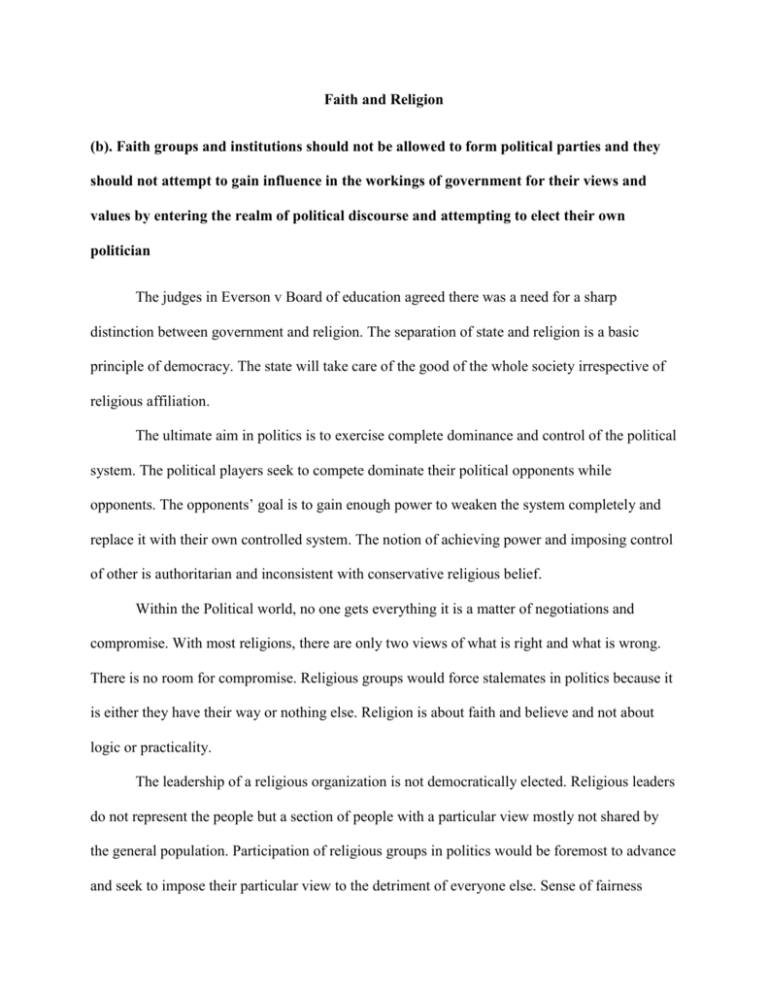
Faith and Religion (b). Faith groups and institutions should not be allowed to form political parties and they should not attempt to gain influence in the workings of government for their views and values by entering the realm of political discourse and attempting to elect their own politician The judges in Everson v Board of education agreed there was a need for a sharp distinction between government and religion. The separation of state and religion is a basic principle of democracy. The state will take care of the good of the whole society irrespective of religious affiliation. The ultimate aim in politics is to exercise complete dominance and control of the political system. The political players seek to compete dominate their political opponents while opponents. The opponents’ goal is to gain enough power to weaken the system completely and replace it with their own controlled system. The notion of achieving power and imposing control of other is authoritarian and inconsistent with conservative religious belief. Within the Political world, no one gets everything it is a matter of negotiations and compromise. With most religions, there are only two views of what is right and what is wrong. There is no room for compromise. Religious groups would force stalemates in politics because it is either they have their way or nothing else. Religion is about faith and believe and not about logic or practicality. The leadership of a religious organization is not democratically elected. Religious leaders do not represent the people but a section of people with a particular view mostly not shared by the general population. Participation of religious groups in politics would be foremost to advance and seek to impose their particular view to the detriment of everyone else. Sense of fairness dictates that the state must be neutral among religions. It would be unfair for a democratically elected government funded by taxpayers and representing its entire people to be seen to favor any group of citizens based on religion (Rawls, 2007). Same way it would be unfair to use taxpayer’s money to advance a religious cause. Reference Rawls, J. (2007). A Theory of Justice. Cambridge, MA: Belknap Press.
